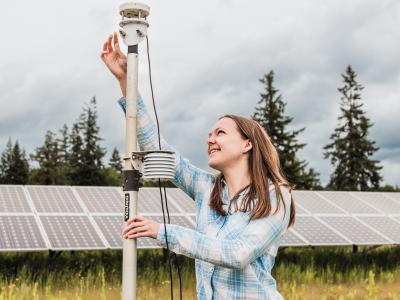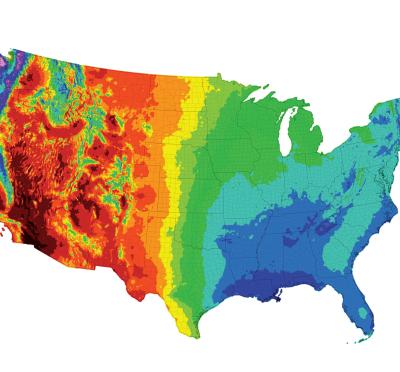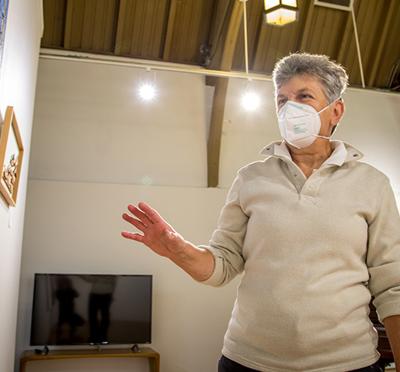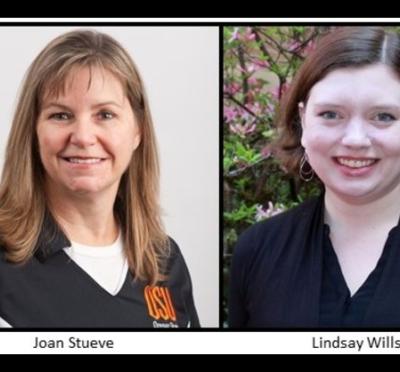
Description
Ecological engineering focuses on integrating human activities into the natural environment to the benefit of both.
Ecological engineers emphasize ecological diversity, resilience, and adaptation to maintain sustainability and balance. Their aim is to simultaneously sustain human activities and protect the world in which they occur.
They engage in many activities geared to help humans flourish within the natural world, such as restoring rivers and wetlands, improving agricultural water quality, rehabilitating abandoned mines, addressing climate change, designing sustainable industrial and agricultural systems, and recharging aquifers.
As a collaboration between the College of Engineering and the College of Agriculture, Oregon State’s ecological engineering program is the first of its kind nationally. The curriculum blends a mix of disciplines and offers greater academic diversity and freedom than conventional branches of engineering. Class sizes are also smaller than most engineering disciplines. A degree in ecological engineering prepares graduates to analyze and solve the complex problems that occur at the interface between humankind and the natural environment.
Undergraduate Information
- Ecological Fluid Mechanics
- Biosystems Analysis and Modeling
- Global Environmental Change: Using Data to Inform Decisions
- Irrigation Principles and Practices
- River Engineering
- Engineers Without Borders - Oregon State University
- Ecological Engineering Student Society
- Minorities in Agriculture, Natural Resources and Related Sciences
- Society for Advancement of Chicanos and Native Americans in Science, Oregon State University Chapter
Have a question about a club? Ask the Engineering Student Council.

“I liked the idea of applying math and science to mend and preserve the environment, and I was attracted to the problem-solving part of engineering. Creating solutions that can lead to a better world was a big reason I wanted to become an engineer.” – Caitlin Godwin, B.S. ecological engineering ’21. Read about Caitlin’s experience at Oregon State.
Laurel Shepard double majored in ecological and environmental engineering so she could pursue a career that would help the environment. In her first year, she begin working with Associate Professor Chad Higgins on a research project about agrivoltaics — the integration of solar panels and agriculture. She was also a member of the Ecological Engineering Student Society, which helped her to explore careers in ecological engineering.
Job Market Outlook
Make an informed decision to help meet your career goals by using this real-time job market information.
Accreditation
The Bachelor of Science and Honor's Bachelor of Science degree programs in Ecological Engineering are accredited by the Engineering Accreditation Commission of ABET, http://www.abet.org/.
PROGRAM EDUCATIONAL OBJECTIVES (PEOs)
Our educational objectives were developed to link the Department’s mission to the student outcomes. The outcomes are then supported by the specific course learning objectives. In Fall 2014, three PEOs for Ecological Engineering graduate objectives were drafted and evaluated by the Industrial Advisory Board:
-
Our graduates will be employed as practicing engineers, engaged in advanced studies, or applying engineering problem-solving skills within non-traditional career paths;
-
Our graduates will bring creative, innovative, and ethical, ecologically-derived, systems-level approaches to solving global problems; and
-
Our graduates will provide ethical leadership and management skills within their organizations and in their communities.
STUDENT OUTCOMES (SOs)
The OSU Biological & Ecological Engineering department prepares its EcoE graduates to achieve Program Educational Objectives through developing the following abilities while enrolled in the EcoE program, as established by the Engineering Accreditation Commission of ABET, http://www.abet.org:
-
An ability to identify, formulate and solve complex engineering problems by applying principles of engineering, science and mathematics.
-
An ability to apply engineering design to produce solutions that meet specified needs with consideration of public health, safety, and welfare, as well as global, cultural, social, environmental, and economic factors.
-
An ability to communicate effectively with a range of audiences.
-
An ability to recognize ethical and professional responsibilities in engineering situations and make informed judgments, which must consider the impact of engineering solutions in global, economic, environmental and societal contexts.
-
An ability to function effectively on a team whose members together provide leadership, create a collaborative and inclusive environment, establish goals, plan tasks and meet objectives.
-
Ability to develop and conduct appropriate experimentation, analyze and interpret data, and use engineering judgment to draw conclusions.
-
Ability to acquire and apply new knowledge as needed, using appropriate learning strategies.



